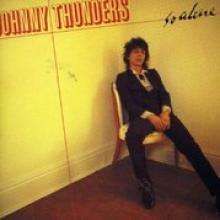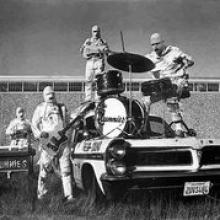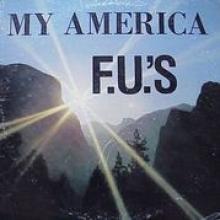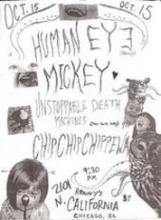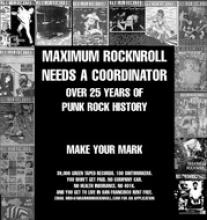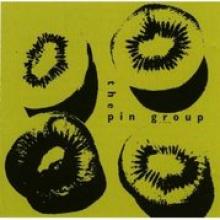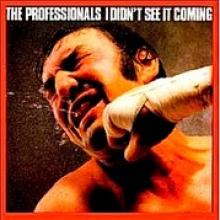Johnny Thunders: All Solo Like...
By the time Thunders stumbled into NOLA and set up shop to die – which seems like an appropriate place for such an occurrence – he’d been releasing discs every few years throughout the ‘80s. None became hits, but each maintained his legacy. There was certainly some sloppy stuff in there as well as a good number of retreads. But I guess if Thunders’ greatest crime was re-recording “Great Big Kiss,” it’s be alright.
Constant touring and the drugs that went along with it eventually became too much for Thunders’ system and it collapsed. But it was a befitting end.
A full thirteen years prior to his demise, Thunders released his first solo disc. It wasn’t even billed as a Heartbreakers album. It was just the guitarist, although, he was joined by a few former Sex Pistols, Chrissi Hynde as well as some former band mates. So Alone, with its cover image finding the guitarist barely sitting in a chair and half awake in some opiate daze, holds a spate of songs that don’t really seem to have any positive bent to ‘em.
The aforementioned Dolls’ cover is a brief respite. And the opening track – a cover of “Pipeline” – isn’t a downer, but it also doesn’t have any lyrics. “Chatterbox” finds itself re-worked for a song entitled “Leave Me Alone.” In its title, one would be safe to guess that it’s not a sunshine kinda song. That being said, the guitar playing here might surpass the original version. The abandon that Thunders still played with is there, but an additional five years to solidify his chops didn’t hurt.
And that’s weird. Shouldn’t the drugs have wasted him by this point? Instead the guitarist unlooses some screeds of guitar stuffs that folks today only dream of.
Aside from that, a few of the originals are clunkers. “(She’s So) Untouchable” doesn’t really bare re-listening. But of course there’s “You Can't Put Your Arms Around a Memory,” which even found itself on a disc of covers that Guns ‘N Roses worked out during the ’90s. The track doesn’t possess the same sort of guitar work that Thunders is associated with. There’re bits of aggression that shine through, but most of the song is given over to acoustic guitar strumming. Thunders laments old problems and wishes for something tangible.
It’s a bummer he’s gone. But we should all learn not to try too hard from this man. It worked out better than one could have expected.
